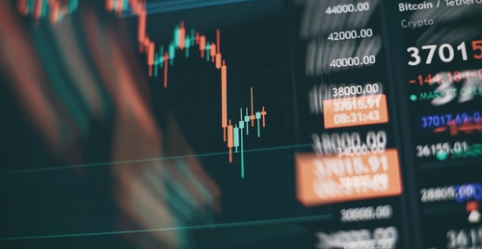Understanding IPOs: what they are and how they work
What does it mean when a company goes public and when should you invest?

IPO stands for Initial Public Offering, which means that a company is offering to sell shares in their business to the public in order to raise money. The process of an IPO means that a company that may have been private before, and hence you couldn't invest in it, is now going to be publicly listed on a stock exchange and you can start trading shares of this company just like any other stock.
In this article, we will answer these questions and more:
- Why do companies have an IPO?
- What does a company have to do to have an IPO?
- Why you, the non-institutional investor, probably won’t get the IPO price.
- When should you actually invest in an IPO?
- How do you decide if you believe in the future prospects of a company that just had an IPO?
- Is it okay to buy some shares in a company that just had an IPO?
Why do companies have an IPO?
One of the main reasons that companies have an IPO, or issue new stocks or other securities to raise money, is because they want money. They might be looking to expand their business and grow it into something even bigger, or they might be looking to acquire other companies. The IPO allows a company to exchange equity of the company for money from investors.
The IPO normally marks when a private company becomes public
Technically, a company can have an IPO more than once, but for the most part, an IPO is when a company that was previously private becomes public. Almost all companies are created as private companies first. The founders may provide some start-up capital and sweat equity and then find a few early investors through various means like angel investors and venture capital. These are all private sources of capital. These transactions take a long time to complete and these private investors normally put up large amounts of money in each transaction. The early stages of a company are very risky, though. Many startups fail. But some find success and start to show an increase in sales and customers. More institutional investors might become interested in the company as they see the long-term potential of the business. The company may have successive rounds of raising capital to various institutional investors who have experience in guiding early-stage companies towards profitability and expansion.

What does a company have to do to have an IPO?
When the company's management feels that the time is right, they can decide to go public through an IPO. An IPO is what is known as a primary market transaction. Shares of the company are sold during the IPO and the money raised goes to the company to fund their operation. At the same time, the shares get listed on a stock exchange and are now free to be bought and sold by retail investors throughout the trading day. The stock market is a secondary market. Transactions here, technically called secondary market transactions, are between investors, not between investors and the company, like in a primary market transaction.
Until a company goes public, it's hard to know the financial state of the company. But part of the IPO process means opening up the books for public scrutiny for the first time. Publicly listed companies are required to regularly file financial reports. IPO companies are also required to provide extensive disclosures about their business and future plans.
Why you, the non-institutional investor, probably won’t get the IPO price
The company going public will hire an investment bank to handle the IPO. The investment bank will advise the company on what the IPO price should be. It is not an exact science. They will estimate demand by investors, look at similar companies' valuations and other factors to determine what the market will bear. The larger the IPO is, the more brokerages will have access to shares at the IPO price. They tend to offer these shares to their institutional clients and other preferred clients first, and the allotment of shares any one brokerage has may get sold out before everyone who wants in on the stock at the IPO price can get access.
On the day of the IPO, it is not uncommon for the price of the shares to jump wildly up or down from the IPO price once shares start trading on the exchanges.
When should you actually invest in an IPO?
IPOs are available on the BMO InvestorLine self-directed platform. If you are comfortable reading through financial statements, and can apply the same analysis you perform before placing other trades, you should apply the same framework as for any other investment in your portfolio. If you are satisfied that an upcoming IPO has a place in your portfolio, you can signal your interest on the platform if the issue is not yet sold out.
If you are unable to get in on that actual IPO, you can still buy the stock post-IPO as it will be trading on an exchange just like any other publicly listed share. Keep in mind that the price of that company may fluctuate wildly, up or down, on the day of the IPO and often for a few trading sessions after that as well. Some investors prefer to re-visit new stocks a few months down the road for this reason, while others may try to trade short-term during the periods of higher volatility.
How do you decide if you believe in the future prospects of a company that just had an IPO?
Just as with any stock trading on an exchange, the current price of a share reflects a balance of opinions on what the future prospects of that company are. The more important question is whether you think you know something that everyone else hasn't factored in, or if you simply have a different opinion. Everyone has access to the same information about the company now that it's public, so the same process for making trading decisions in general usually makes sense for companies that have been listed for decades or days.
Is it okay to buy some shares in a company that just had an IPO?
If you were not able to get in on the IPO, you can always trade the stock on an exchange now that it's publicly listed. While the stock may have popped or dropped on the day of its IPO or in the following days and weeks afterwards, you should consider the price today: do you think that price accurately reflects the value of the company or not, given what you know about the company, and your estimates of its future prospects? If you think the price is too high, you might avoid it (or sell it if you owned it). If you think the shares are worth more, you might buy some.
Attempting to trade a stock on the day of its IPO can be very speculative. If you put a market order in before trading begins and the stock falters on the first day of trading, your order might get filled near the open at a high price and you could find yourself with a double-digit loss before lunchtime. Conversely, you could also put an order in and wonder why it's not getting filled as you see the stock going higher and higher. It's generally worth considering limit orders to avoid nasty surprises, and even then, it's possible your order doesn't get filled.
Ready to start investing?
Start investing online with BMO InvestorLine Self-Directed.
Have questions?
The opinions and views expressed in this presentation are those of the presenter and not necessarily BMO InvestorLine Inc. This presentation is prepared as a general source of information and is not intended to provide legal, investment, accounting or tax advice, and should not be relied upon in that regard. If legal or investment advice or other professional assistance is needed, the services of a competent professional should be obtained. Any information contained in this presentation does not constitute and shall not be deemed to constitute advice, an offer to sell/ purchase or as an invitation or solicitation to do so for any entity. The content of this presentation is based on sources believed to be reliable, but its accuracy cannot be guaranteed. BMO InvestorLine Inc. and its affiliates, sponsors and employees do not accept responsibility for the content and makes no representation as to the accuracy, completeness or reliability of the content and hereby disclaims any liability with regards to the same.
